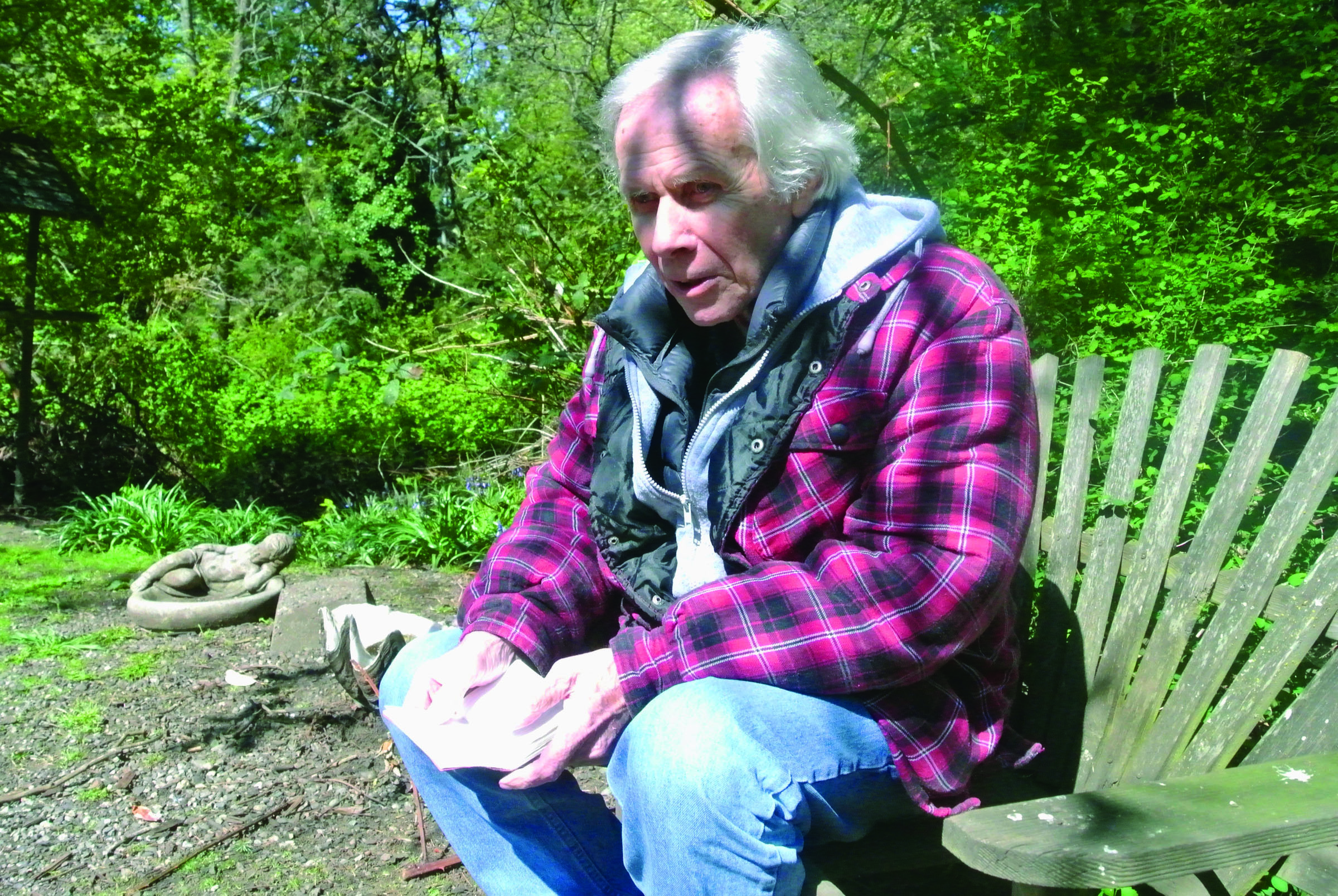PORT TOWNSEND — A nest destroyed during a windstorm last week was the home for a mated pair of bald eagles for a decade, said a Port Townsend man whose hobby is documenting the birds.
The nest in a Douglas fir near the Battery Walker in Fort Worden State Park was maintained by the same female and her mate for 10 years, said Bob Capener, 81, who named the eagles Kah and Tai for the Kah Tai Lagoon Nature Park in Port Townsend.
High winds Friday night knocked the nest out of the evergreen and sent it spinning some 30 feet into the surrounding forest while also cutting off the top of the host tree.
“I don’t know what she will do,” Capener said of Kah.
“She could take over an abandoned nest, and eagles have been known to chase ospreys out of their nests, but it is a little late in the season for her to start again this year.”
Capener, who is retired from the U.S. Air Force, provided official data about eagles to the state Fish and Wildlife Department until the volunteer program was discontinued.
Since then, he has kept logs on them as a hobby.
Capener had watched Kah, who he estimates at 25 years old, since the mid-1990s while she built and used three different nests.
He has observed nine chicks successfully hatched over the past 10 years, which he said was “a pretty good average.”
Two-egg clutches are common for bald eagles.
One year, the chick did not survive because the nest was attacked by turkey vultures, he said.
The public was denied access to the Battery Walker, which is midway up Artillery Hill on a cliff overlooking the Strait of Juan de Fuca, during hatching and fledging season from March until June or July.
The area was reopened to the public early this year, after members of the Makah tribe performed a commemorative ceremony Saturday, park volunteer Kevin Alexander said.
After the windstorm, Fort Worden State Park workers looked for eggs from the nest but found nothing, were unsuccessful, Alexander said.
The nest, which measured some five feet across, landed on its top, he said.
Said Capener: “If the nest had landed right-side-up, the eggs may have survived and the mother eagle would have incubated them there.”
The tree had been killed by English Ivy, which wraps itself around the bark and cuts off the tree’s nutrients, according to Alexander.
“We saw that tree was in bad shape and were surprised that she chose to build her nest there again this year,” Alexander said.
Capener said that Kah and Tai haven’t left the area.
“I saw them hanging around over the weekend,” Capener said Tuesday.
“They have a special perch a little ways down from the nest and she was yelling at him, saying, ‘What the hell are we going to do now?’”
________
Jefferson County Editor Charlie Bermant can be reached at 360-385-2335 or at charlie.bermant@peninsuladailynews.com.
